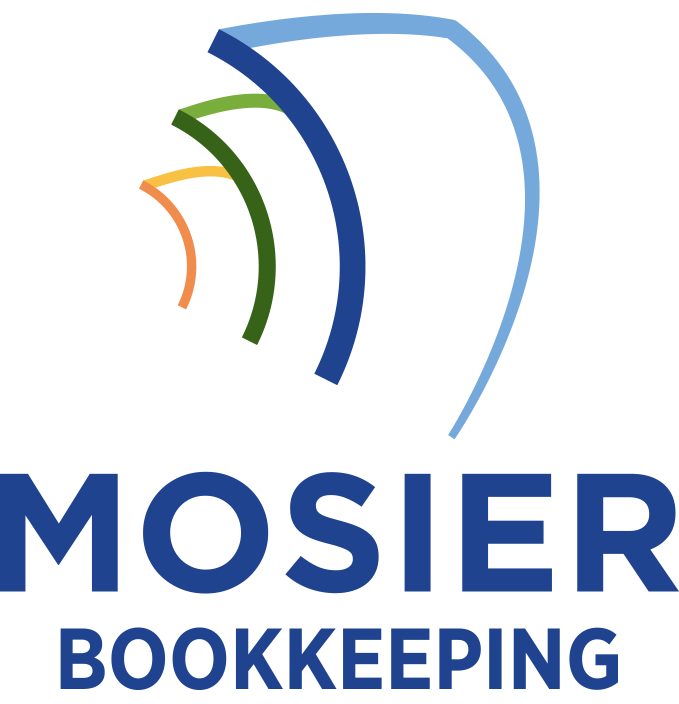A detailed bookkeeping system for sustainable businesses enables you to track both financial metrics and environmental impact simultaneously. I’ve found it essential for monitoring green investments, resource efficiency, and ROI through IoT sensors and smart meters. You’ll streamline environmental reporting, optimize resource allocation, and strengthen grant applications while ensuring tax compliance. Understanding these interconnected benefits will transform how you manage your sustainable enterprise’s growth and impact.
Enhanced Tracking of Green Investments and Returns
Sustainable businesses must keep tabs on their eco-friendly investments to measure both environmental impact and financial returns effectively. I’ll help you implement robust tracking mechanisms for your green initiatives, from solar panel installations to waste reduction systems.
Real-Time Monitoring of Resource Efficiency
I’ll guide you through implementing real-time resource monitoring to track your daily material usage, analyze energy consumption patterns, and measure waste reduction metrics. By integrating IoT sensors and smart meters into your bookkeeping system, you’ll capture precise data on resource utilization across your operations. This automated tracking enables you to identify inefficiencies, calculate cost savings from sustainable practices, and make data-driven decisions to optimize your resource management.
Tracking Daily Material Usage
Building a robust system for tracking daily material usage forms the foundation of resource efficiency monitoring in sustainable businesses. I’ll show you how to gain precise control over your material inputs through systematic daily tracking that empowers data-driven decisions.
| Material Type | Daily Usage Metrics |
|---|---|
| Raw Materials | Weight/Volume Used |
| Energy | kWh Consumed |
| Water | Liters Processed |
| Waste | Output in kg |
Energy Consumption Data Analysis
Every successful sustainable business needs real-time energy consumption monitoring to identify efficiency opportunities and reduce operational costs. I’ll show you how to leverage data analytics to transform your energy usage patterns into actionable insights. By implementing smart meters and IoT sensors, you’ll track kilowatt-hours, peak demand periods, and equipment performance metrics in real-time. This enables immediate detection of anomalies and inefficiencies. Through my systematic approach, you’ll establish baseline consumption patterns, set reduction targets, and quantify ROI on energy-efficient upgrades. You’ll command precise control over your energy expenditure while positioning your business as an industry sustainability leader.
Waste Reduction Cost Metrics
While traditional accounting systems track revenue and expenses, real-time waste reduction metrics provide critical visibility into resource efficiency and cost-saving opportunities. I’ll show you how monitoring waste reduction directly impacts your bottom line through granular data analysis.
- Real-time material loss tracking across production cycles
- Automated waste sorting categorization with cost assignment
- Disposal fee reduction through improved resource allocation
- Supply chain optimization based on waste stream analysis
- ROI calculations for recycling program investments
Simplified Environmental Impact Reporting

Sustainable businesses need a streamlined approach to track their environmental footprint without getting overwhelmed by complex metrics. I’ve developed a simplified reporting framework that captures essential environmental impacts while maintaining efficiency in your bookkeeping system.
| Impact Category | Key Metrics | Tracking Frequency |
|---|---|---|
| Energy Use | kWh consumed | Monthly |
| Water Usage | Gallons used | Weekly |
| Carbon Output | CO2 emissions | Quarterly |
I’ll help you integrate these metrics into your existing financial records. By measuring these core environmental indicators, you’ll demonstrate your commitment to sustainability while maintaining precise data for stakeholder reporting and regulatory compliance. This systematic approach empowers you to make data-driven decisions about your environmental initiatives.
Strategic Decision-Making for Sustainable Growth
I’ve found that integrating real-time financial data with sustainability metrics enables you to make strategically sound growth decisions while maintaining your environmental commitments. You’ll optimize your resource allocation by analyzing performance indicators that link profitability to sustainability outcomes, identifying which initiatives deliver the highest combined returns. Your sustainability impact analysis will reveal opportunities to scale operations efficiently while minimizing environmental costs, letting you chart a growth trajectory that aligns with both business and ecological objectives.
Data-Driven Growth Planning
Three key elements transform raw bookkeeping data into strategic growth decisions for sustainable businesses: financial trend analysis, performance metrics tracking, and predictive modeling. I’ll show you how to leverage these components to drive expansion while maintaining your sustainability commitments.
- Revenue-to-resource consumption ratios identify ideal scaling points
- Carbon footprint metrics linked to operational costs reveal efficiency opportunities
- Supply chain sustainability scores guide vendor selection and negotiation
- Customer lifetime value calculations prioritize eco-conscious market segments
- ROI analysis of green technologies supports investment timing
Resource Allocation Optimization
Building on our data analysis insights, effective resource allocation transforms strategic planning into measurable sustainable outcomes. I’ll show you how to optimize your capital, time, and human resources through data-driven decision-making.
By analyzing your bookkeeping metrics, you’ll identify high-ROI opportunities and eliminate inefficient spending patterns. You can leverage this intelligence to reallocate resources toward growth initiatives that align with your sustainability goals. I recommend implementing dynamic resource modeling to adjust allocations based on real-time performance data.
This systematic approach enables you to maximize resource utility while maintaining your commitment to sustainable business practices.
Sustainability Impact Analysis
While traditional financial metrics remain important, sustainability impact analysis provides critical data for evaluating your business’s environmental and social performance. I’ll show you how to leverage this analysis to drive strategic decisions and maintain competitive advantage.
- Track carbon footprint across operations and supply chain
- Measure resource efficiency through waste reduction metrics
- Monitor social impact via community engagement indicators
- Quantify renewable energy adoption and cost savings
- Assess supplier sustainability compliance scores
Grant and Funding Documentation Support

Small sustainable businesses can tap into numerous grant and funding opportunities by maintaining meticulous documentation of their environmental and social impact metrics. I recommend implementing a vital tracking system that captures your carbon footprint reductions, waste management initiatives, and community engagement programs. You’ll gain a competitive advantage when applying for sustainability grants by presenting verifiable data on your green initiatives.
Your bookkeeping system should integrate specific documentation templates that align with common grant requirements, enabling you to quickly generate reports that showcase your business’s sustainable practices and quantifiable achievements. This streamlined approach maximizes your potential for securing essential funding.
Tax Benefits and Environmental Compliance Management
Beyond securing grants, proper documentation serves another valuable purpose: maximizing tax benefits through environmental compliance tracking. I’ll show you how meticulous bookkeeping enables you to capitalize on sustainability-focused tax incentives while maintaining regulatory compliance.
- Track carbon offset credits and renewable energy certificates for tax deductions
- Document sustainable material purchases qualifying for eco-friendly business credits
- Monitor waste reduction metrics to validate environmental compliance
- Record energy efficiency improvements for utility rebates and tax incentives
- Maintain sustainability certification documentation for preferential tax treatment









